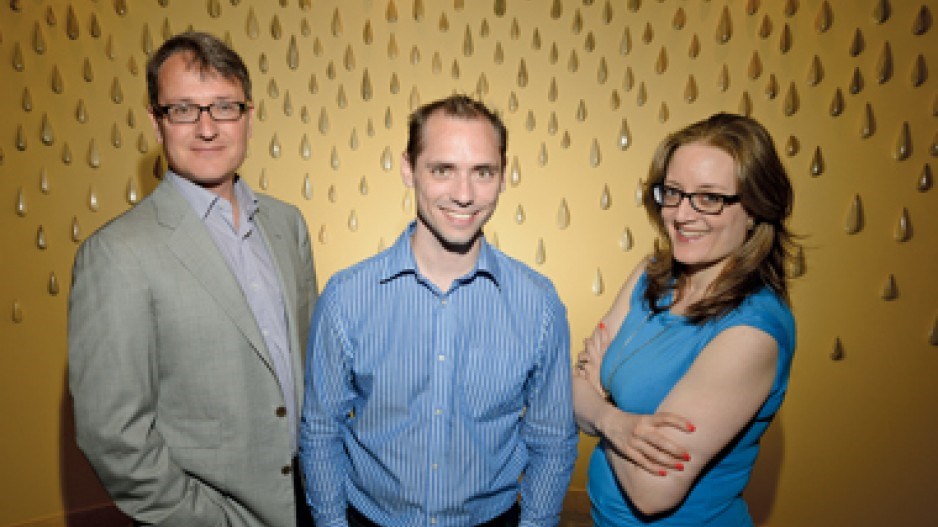With investment cycles beginning to swing back in favour of high tech, it's a good time to be a tech startup.
But rather than aspiring to become the next Facebook (Nasdaq:FB), Vancouver tech startups might want to think of becoming the next SAP AG (NYSE:SAP) instead.
After all, with a market cap of $85 billion, the Germany-based enterprise software giant is worth the value of Facebook and Yahoo Inc. (Nasdaq:YHOO) combined.
In 2008, it made its biggest acquisition with the purchase of Business Objects, which had earlier acquired Vancouver-based Crystal Decisions in 2003 to create SAP Labs Vancouver, which now employs 1,200 people. The firm is part of a global enterprise with $22 billion in annual sales, 65,500 employees and more than 230,000 business customers.
Not bad for a Vancouver company that started out in 1984 with "four guys in a garage."
"You think about the classic startup that everybody dreams about, usually it's consumer-based," Scott Morrison, former CTO of Layer 7, said at a startup forum hosted recently by SAP Labs Vancouver.
"Enterprise is a very viable market for startups and one that's often overlooked. Consumer has scale going for it. The nice thing about enterprise is, in some ways, it's a smaller pool, you can go in and be much more focused, and the rewards can be tremendous, because enterprise deals tend to be large."
Acquisitions within the enterprise software sector also tend to be large. Last month, CA Technologies completed its acquisition of Layer 7 for $155 million.
Although SAP develops its own enterprise software, it's always on the lookout for startups with new ideas. The purpose of the recent Vancouver startup forum – the first to be held in Canada – was twofold: to identify promising new startups and to market its new HANA database.
SAP's new "in-memory" approach to computing is being described as disruptive technology that will be key to real-time big data analysis.
"Small companies can now build solutions that were previously impossible to do, or too expensive or too slow to do," SAP co-CEO Jim Hagemann Snabe (Q&A, below) told Business in Vancouver.
By offering startups the use of HANA as a platform to develop their own software applications, SAP hopes to expand HANA's potential applications.
"It's so disruptive, it's so different, and something that you just couldn't do before, that the more you sit and think about it, the more applications come to mind," said Kirsten Sutton, vice-president and managing director for SAP Labs Canada.
"That's why we're doing this: we can't possibly think of all the applications [ourselves]."
Overinteractive Media Inc., which built Cinecoup's film accelerator, was one of the 30 startups at last week's forum.
"HANA is something we're looking at," said Nathaniel Payne, director of research and analytics for Overinteractive Media. "I need to understand more about ramifications and costs, but we're looking for something in-memory, and it might be a solution."
As part of their pitch at the forum, startups described what their products do and how they would use HANA. Based on this, SAP selected startups to get access to a cloud-based version of HANA at a reduced price. The startups were also competing for financing through a new venture capital fund SAP has set up.
"My goal today is to have a start up from Vancouver standing on stage at [annual SAP technical education conference and awards] TechEd this year [representing] SAP Vancouver as the winner," Sutton said.
What in-memory computing offers
In-memory computing might not sound as sexy as big data, but it could be the next major leap forward in computers, says SAP, the developer of an in-memory database called HANA.
"You can analyze reams of data in nanoseconds," said SAP's Kirstin Sutton. "It's not just that it's big data, it's that it's real-time data."
HANA eliminates the disks that databases typically store information on and, instead, harnesses a computer's random access memory (RAM) for storage and processing – possible in the past, but prohibitively expensive.
In-memory processing cuts several layers of processing and storage, which makes it fast enough to do real-time analysis of big data. The HANA system can either be purchased – which requires new hardware – or subscribed to through a cloud-based system.SAP's recent startup forum was intended, in part, to get startups to use the HANA as a platform to develop their own applications.
One life sciences company in Germany, MolecularHealth, used HANA to tailor individualized cancer treatments based on the genetically peculiar mutations in patients' DNA.




